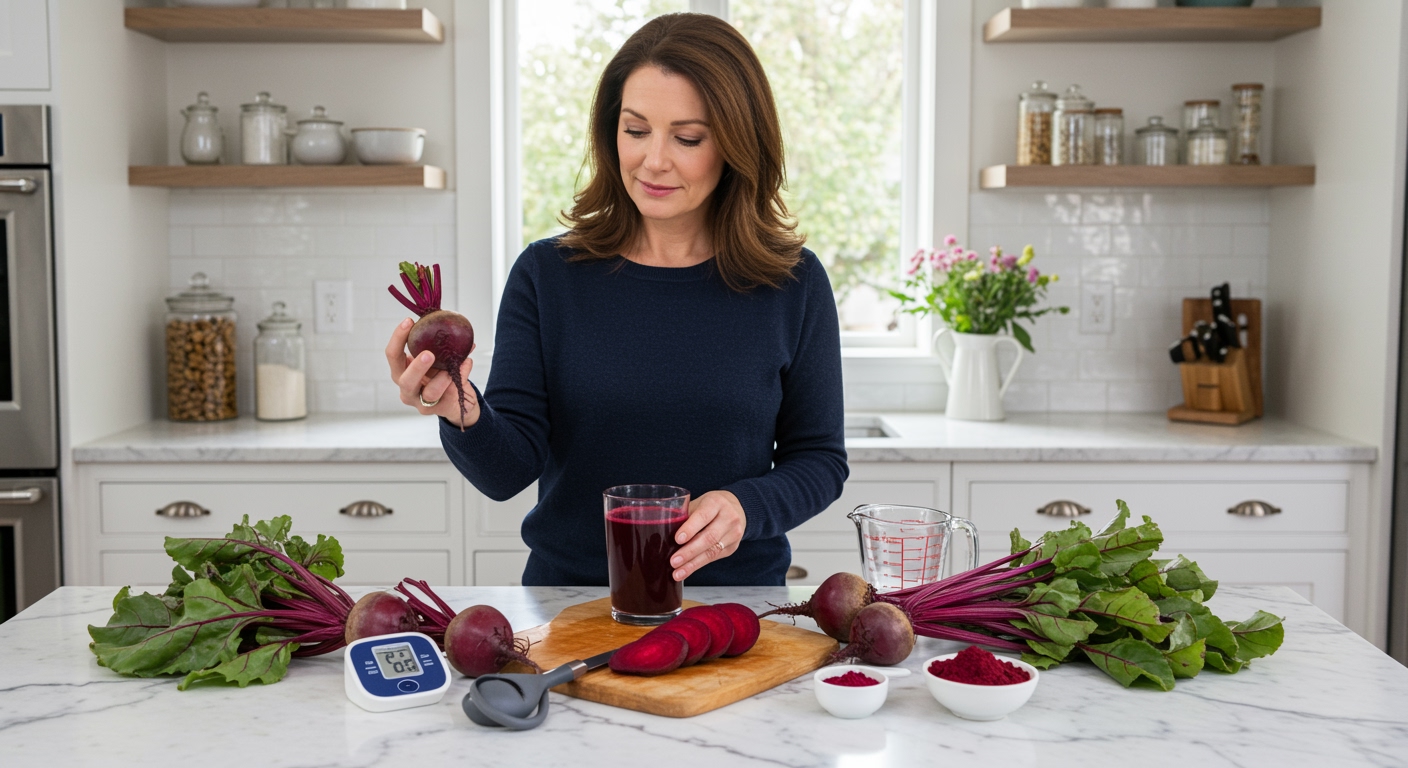✪ Key Takeaway: Wild beets can lower blood pressure through natural nitrates that convert to nitric oxide, relaxing blood vessels within 2-3 hours.
Introduction
Your grandmother might have been onto something when she insisted that earthy, dirt-covered wild beets were better than store-bought ones.
You are probably asking this question because you have heard conflicting information about beets and blood pressure, or maybe your doctor mentioned trying natural approaches before medication.
Hi, I am Abdur, your nutrition coach and today I am going to explain exactly how wild beets can impact your blood pressure and whether they deserve a place in your heart-healthy eating plan.
What Makes Wild Beets Different From Regular Beets?
Wild beets contain significantly higher concentrations of nitrates compared to their cultivated cousins.
These natural compounds develop when plants grow in nutrient-rich soil without human intervention.
Regular beets from grocery stores typically contain 200-300 mg of nitrates per 100 grams, while wild varieties can contain up to 500-700 mg per 100 grams.
The mineral profile also differs dramatically between wild and cultivated beets.
Wild beets absorb more potassium, magnesium, and folate from untreated soil, creating a more potent cardiovascular support system.
✪ Fact: Wild beets have been used medicinally for over 2,000 years in traditional European medicine.
How Do Nitrates In Wild Beets Lower Blood Pressure?
Your body converts the nitrates in wild beets into nitric oxide through a fascinating biochemical process.
When you consume wild beets, beneficial bacteria in your mouth first convert nitrates to nitrites.
These nitrites then travel to your stomach, where the acidic environment transforms them into nitric oxide.
Nitric oxide acts as a powerful vasodilator, meaning it relaxes and widens your blood vessels.
This relaxation reduces the pressure needed for your heart to pump blood throughout your body.
Research shows this process can begin within 30 minutes of consumption and peak effectiveness occurs around 2-3 hours later.
✪ Pro Tip: Avoid using mouthwash for 6 hours after eating beets as it kills the beneficial bacteria needed for nitrate conversion.
What Does The Research Say About Beets And Blood Pressure?
Multiple clinical studies have demonstrated the blood pressure lowering effects of beetroot consumption.
A 2017 systematic review found that beetroot juice consumption resulted in an average systolic pressure reduction of 4-5 mmHg.
Another study involving 68 patients with high blood pressure showed that drinking 250ml of beetroot juice daily for four weeks significantly lowered both systolic and diastolic pressure.
The duration of effect typically lasts 6-8 hours after consumption, making it a temporary but measurable intervention.
Researchers noted that the effects were most pronounced in people with mild hypertension rather than those with severely elevated blood pressure.
However, most studies used beetroot juice rather than whole wild beets, which may have different absorption rates and effectiveness.
✪ Note: The blood pressure lowering effect is dose-dependent, meaning more beets generally provide greater benefits up to a point.
How Much Wild Beet Should You Consume For Blood Pressure Benefits?
The optimal dosage for blood pressure benefits appears to be around 300-500 mg of nitrates daily.
This translates to approximately 100-150 grams of fresh wild beets, which is roughly one medium-sized beetroot.
You can consume this amount as fresh juice, cooked beets, or even dried beet powder mixed into smoothies.
The timing of consumption matters significantly for maximum blood pressure benefits.
Consuming wild beets 2-3 hours before you typically experience your highest blood pressure readings provides the best results.
For most people, this means eating beets in the late morning or early afternoon when blood pressure naturally peaks.
✪ Pro Tip: Start with smaller amounts and gradually increase to avoid digestive upset that can occur with sudden high nitrate intake.
Are There Any Risks Or Side Effects To Consider?
Wild beets are generally safe for most people, but several important considerations exist.
The most common side effect is beeturia, which causes your urine to turn pink or red within 24 hours of consumption.
This harmless condition affects about 10-14% of people and indicates your body is processing the betalain pigments properly.
People with kidney stones should exercise caution because beets contain oxalates that can contribute to stone formation.
If you take blood pressure medications, monitor your levels closely as the combination might cause your pressure to drop too low.
Wild beets also contain natural sugars, so people with diabetes should account for this in their carbohydrate counting.
✪ Note: Always consult your healthcare provider before using wild beets as a blood pressure management strategy, especially if you take medications.
The Bottom Line
Wild beets can indeed lower blood pressure through their high nitrate content, which your body converts to nitric oxide for improved blood vessel function.
Nature provides the tools, but consistency builds the foundation for lasting health changes.
I would love to hear about your experiences with wild beets or any questions you might have about incorporating them into your blood pressure management plan, so please share your thoughts in the comments below.
References
At NutritionCrown, we use quality and credible sources to ensure our content is accurate and trustworthy. Below are the sources referenced in creating this article:





